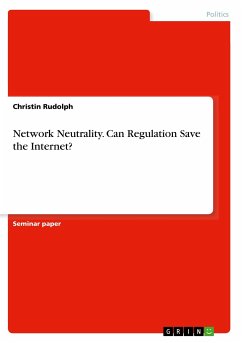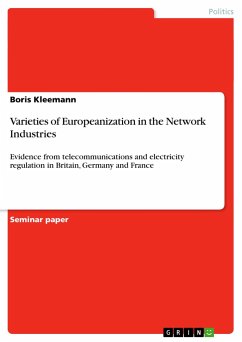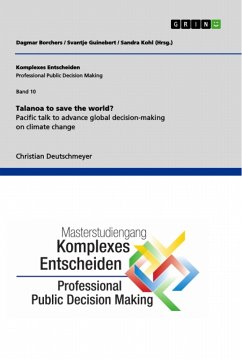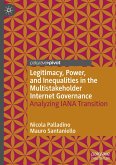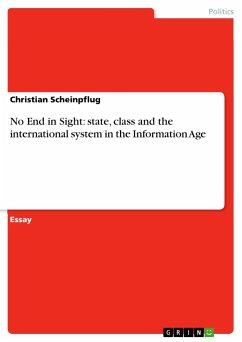Seminar paper from the year 2019 in the subject Politics - International Politics - Topic: Miscellaneous, grade: 1,3, University of Mannheim, language: English, abstract: In December 2017, the net neutrality regulation of the US was repealed. One year later, evaluations of the consequences show an immense bandwidth. Some find that the (American) internet did not change at all or even improve because of the legal change, citing spurious relationships such as increased internet speed rates (Moran 2018). Others see very concrete negative consequences, for example that the promises of ISPs about more network investment, lower prices and no negative traffic discrimination were not kept (Sohn 2018). And research conducted in 2018 using the app Wehe concluded that in their tests, "nearly every" US cellular ISP (internet service provider) throttles traffic, meaning setting a limit on the available bandwidth for at least one streaming video provider - before and after the repeal of the law took effect (Choffne 2019). So what can be inferred from the 'natural experiment' with net neutrality regulation in the US by first introducing and then negating it again? On the one hand, the fact that the debates sparked primarily in the US at different points of time triggered similar actions in other parts of the world shows the importance of the question. As average citizens are usually not too well informed about or involved in the shaping of internet governance, the massive mobilization of civil society that led for example in the US (2014 and 2017), Brazil, the EU and India to thousands of contributions on public policy consultations is even more striking (Marsden 2017). With an ever increasing demand for more bandwidth and rising numbers of internet users especially in developing countries, not only the topic of net neutrality will become even more salient but users will come to realise this salience. On the other hand, the content of the debates and the number of countries without net neutrality measures in place (Dynamic Coalition on Net Neutrality 2018) shows relatively small progress since the beginning of the century. Reasons for that are the lack of empirical evidence for common claims or about the impact of introduced regulations as well as the missing link between economic, social, technological, political and human rights based arguments in the discussions (Marsden 2017). But one of the main reasons is probably lacking awareness among policymakers and national stakeholders how pressing the issue is. In the following I try to address those challenges by asking if and when there should be regulations on net neutrality.
Hinweis: Dieser Artikel kann nur an eine deutsche Lieferadresse ausgeliefert werden.
Hinweis: Dieser Artikel kann nur an eine deutsche Lieferadresse ausgeliefert werden.

